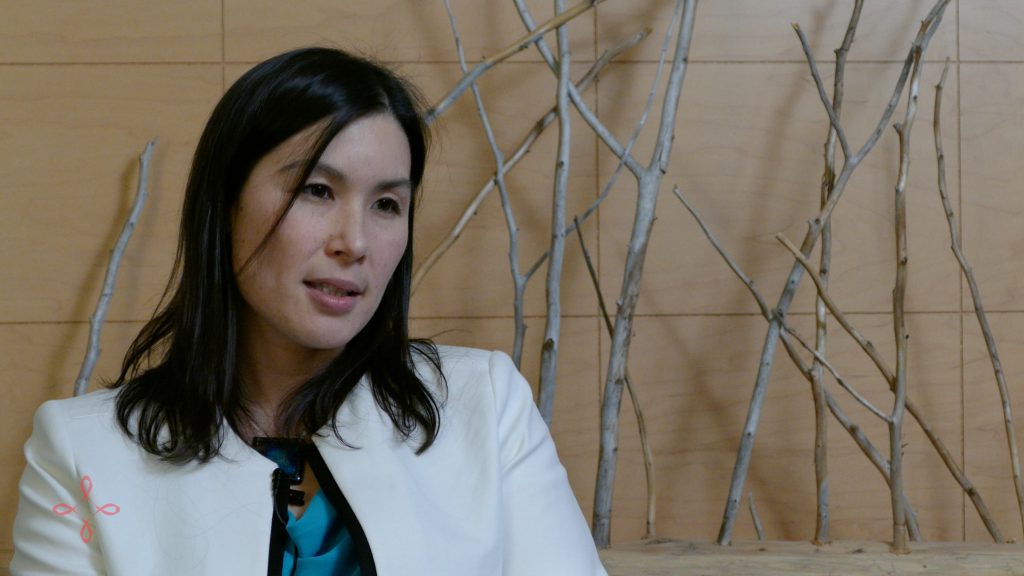Speaking at the Northern Exposures conference on Manitoulin Island, in October, 2015, Denise Jaworsky talks about barriers to health care in rural areas; Mark Forsythe talks about travel & stigma as barriers to testing and education; Camille Lavoie talks about the stigma around HIV tests, the need to give people options, and the need to bring treatment to people.
Transcript
Denise Jaworsky
My name is Denise Jaworsy and I’m just finishing up my internal medicine my general internal medicine training,
and so I’m both a clinician at the end of my training, and a researcher-in-training as well, as I’m doing my masters in Clinical Epidemiology. And my clinical interest as well as my interest in research revolves around access to care for populations living in remote and rural areas and underserved populations, in particular access to specialty care.
Some of the things that I’ve noticed that I mean are fairly intuitive are the access to care in rural communities is definitely quite different from the access in larger urban centres. There’s a much lower distribution of physicians to population in rural areas and particularly a fewer number of specialists that provide care in rural areas. And people living in rural areas often have to travel a very long distance and a long time and spend a lot of money to get to medical appointments. So these are some of the barriers that are affecting the health of populations.
Mark Forsythe
So for HIV care, travel is an issue, just because there is no bus that comes from Manitoulin Island to Sudbury. In order to get a bus you have to go from Espanola. So if you can’t find a way to get to your bus ,you’re not going for your appointment. A lot of people don’t own cars, if you don’t own a car on the island it’s brutal, and you can’t, you’re just, you know, using taxis to get around to do your groceries and stuff and that cost money you can’t afford to pay someone to drive you even with even if you can get a travel grant to drive you to Sudbury for your appointment so travel is a barrier. Lack of education–I’m finding this more and more–it is really hard to educate people in the community that I’m in at least about HIV and hep c. If you flat-out tell them that that’s what you’re doing—an educational session on—you will not get anyone showing up except for like nursing staff or PSWs, people who would work in there, and they can rationalize why their being there to other people in the community. You’re not getting community members to show up to these events, which is the people who need the education the most because they’re the ones who have been educated the least. And that is because of stigma, or perceived stigma. There’s an assumption that if I am walking into a presentation and somebody sees me walking into this presentation on HIV or hep c, they’re gonna immediately assume that I’m HIV or hep c positive. So getting education out there is really tricky and you kind of got to hide it.
Camille Lavoie
I’m Camille Lavoie. I’m a Hep C treatment nurse at Réseau Access Network —that’s an AIDS service organization for Sudbury/Manitoulin.
I think you see the most stigma when you come to areas like Manitoulin Island. So it’s very hard to to kind of engage people in care. And one of the things that is always surprising to me is even though there is transportation that’s
available for them to be coming in to Sudbury, to see the infectious disease specialist, and to get treated they don’t want to be on the van. Because the van is for people who have cancer, the van is for people who are very sick, they don’t want the questions. So right there it’s a huge barrier. So now they can’t get off reserve, so that’s why we try as much as possible to let everybody know we will come on, and we will actually pull the blood on reserve just to reduce that stigma. Nobody else needs to know about anything because maybe you’re coming to the health center just for your diabetes or your hypertension. It doesn’t have to be to see us. But it is an issue, definitely. Often people are more comfortable just actually moving off of reserve, and coming into the city to live.
So I would think that in the north you need to bring treatment whether it’s hep C or HIV, to people, not people to the treatment. You have to be able to use the specialists through OTN, but it’s very important that the nurse practitioners who are at the health centers or the family doctors working in those areas feel comfortable about treating hep C and treating HIV.
